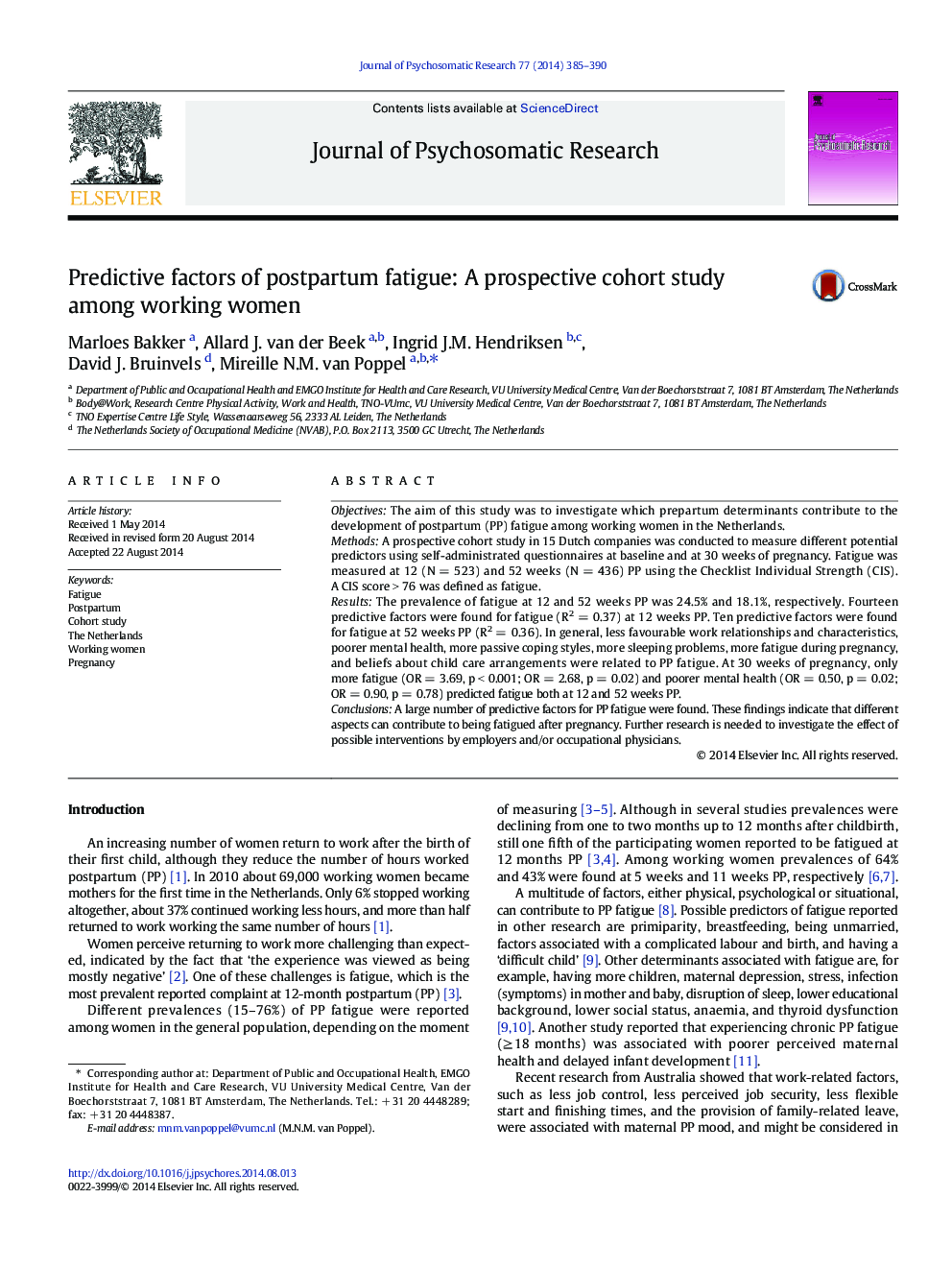| کد مقاله | کد نشریه | سال انتشار | مقاله انگلیسی | نسخه تمام متن |
|---|---|---|---|---|
| 949298 | 926743 | 2014 | 6 صفحه PDF | دانلود رایگان |
• Fatigue is the most common health problem in the postpartum period.
• It is not clear which women are most at risk for severe fatigue after giving birth.
• We studied factors in pregnancy predicting postpartum fatigue among working women.
• Previous fatigue and poor mental health are predictors for postpartum fatigue.
• Preventive interventions should focus on these different aspects.
ObjectivesThe aim of this study was to investigate which prepartum determinants contribute to the development of postpartum (PP) fatigue among working women in the Netherlands.MethodsA prospective cohort study in 15 Dutch companies was conducted to measure different potential predictors using self-administrated questionnaires at baseline and at 30 weeks of pregnancy. Fatigue was measured at 12 (N = 523) and 52 weeks (N = 436) PP using the Checklist Individual Strength (CIS). A CIS score > 76 was defined as fatigue.ResultsThe prevalence of fatigue at 12 and 52 weeks PP was 24.5% and 18.1%, respectively. Fourteen predictive factors were found for fatigue (R2 = 0.37) at 12 weeks PP. Ten predictive factors were found for fatigue at 52 weeks PP (R2 = 0.36). In general, less favourable work relationships and characteristics, poorer mental health, more passive coping styles, more sleeping problems, more fatigue during pregnancy, and beliefs about child care arrangements were related to PP fatigue. At 30 weeks of pregnancy, only more fatigue (OR = 3.69, p < 0.001; OR = 2.68, p = 0.02) and poorer mental health (OR = 0.50, p = 0.02; OR = 0.90, p = 0.78) predicted fatigue both at 12 and 52 weeks PP.ConclusionsA large number of predictive factors for PP fatigue were found. These findings indicate that different aspects can contribute to being fatigued after pregnancy. Further research is needed to investigate the effect of possible interventions by employers and/or occupational physicians.
Journal: Journal of Psychosomatic Research - Volume 77, Issue 5, November 2014, Pages 385–390
